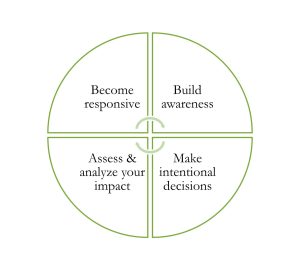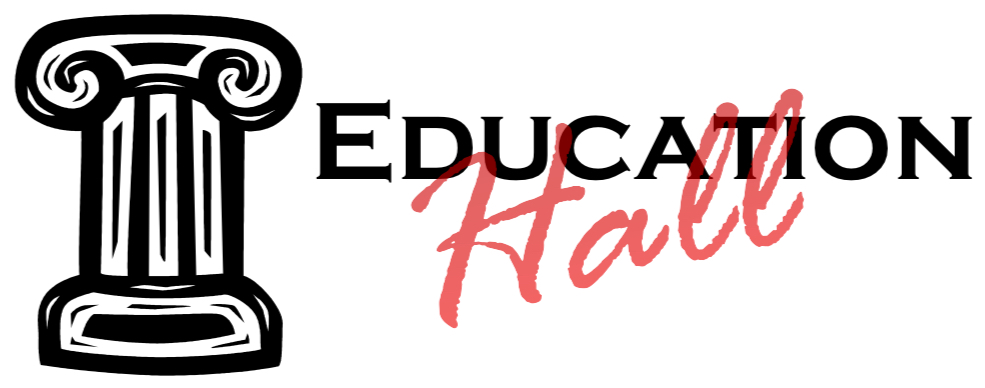By David Voves

If you want sustainable school success, try this…
Take a minute and identify what is your district’s/building’s greatest resource?
If your reply was anything other than teachers and faculty, I’d urge you to reconsider. By simply thinking of how often educators are identified as “difference makers” in people’s lives, it’s clear why we must do everything within our abilities to invest in our people. We prioritize our people by enhancing every educator’s reflective capacity, as well as meeting them where they are as individuals and providing strategic support.
You might be wondering, “Reflective capacity? Why invest time and energy into developing teachers’ reflective capacity when we have test scores to raise, classroom management issues to contend with, student supports to provide, and all these other immediate needs?”
As we all know, there is no magic wand in education. However, if we focus our attention on developing every educator’s ability to reflect and reflect effectively, we can, in fact, equip all educators with one of the most impactful skills that is often at the root of all success. From almost two decades in education, my experiences indicate that the most effective principals and educators are those that are highly effective reflectors; this relationship is not serendipitous.
Indeed, highly effective educators are individuals whose thinking often follows the *Reflective Cycle, a cyclical pattern of questions, ideas, and thoughts that hone in on:
*Building awareness of the goal they want to accomplish
*Making intentional decisions to craft a plan to achieve that goal
*Assessing and analyzing the impact of their actions, and
*Becoming responsive to make the potential adjustments to get their desired result.

Therefore, as educational leaders, it’s our responsibility to enhance this habitual practice within ourselves and our colleagues. Instead of seeing thinking and reflection as synonyms, reflection is much deeper, as it is focused, intentional, evaluates impact, and drives future action.
Enhancing the ability to reflect effectively means developing a skill set that is transferable to any situation or context. Once one’s reflective capacity is fully developed, you do more than open a window to success, you knock down the barriers to each new challenge or obstacle. Think about it: reflection is the one skill that transcends all curricula, content areas, grade-levels, and positions, not to mention all careers and personal lives! With this practice refined, educators will be equipped to master any new curricular change, a new teaching assignment, a new student, a new administrator, a new ____ (you fill in the blank). Therefore, it’s essential to focus our attention on developing this transferable and transformational skill that ensures sustainable success.
The most effective principals and educators are those that are highly effective reflectors; this relationship is not serendipitous.
Now, you might be thinking “Okay, I can spend some time on reflection, but changing someone’s thinking seems easier said than done, how am I supposed to actually make this happen?”
As with accomplishing any worthwhile feat, it’s achieved one step at a time (and one person at a time). In this case, it begins with and requires what we all know is extremely important in the human experience, which is a judgment-free personal relationship built upon trust and respect. Trust and respect are prerequisites for transparency and vulnerability. If your relationship is void of these prerequisites, dialogue shared will lack authenticity and openness, resulting in a hindered ability to strategically design a plan to enhance reflective practice.
Each teacher’s plan will encourage incremental growth that is made every day (one step at a time) that addresses a topic or practice of importance to them. Your efforts will support the teacher in achieving their desired outcome, and their success will spur their pursuit of identifying and exploring subsequent topics or practices. Success breeds success, and therefore a mindset of n + 1 will be fostered: Every day, a tad bit better than the day before.
While the teacher’s topic or practice will be the guiding point of collaborative conversations and reflections, your capacity-building efforts will be intentional and focused on the goal that truly makes success sustainable: building the reflective capacity of the teacher.
We do this, in part, by providing critical questions that drive our teacher’s thinking along the Reflective Cycle. Here are some of my favorites:
Building awareness (becoming more aware and knowledgeable)
- Your goal is ___. I noticed you used ___ (strategy) and it was effective because ___ (student response). Use it whenever you want your students to ___ (ideal outcome).
- Try this ___ (strategy) and tell me two things you noticed about ___ (how students respond).
Making intentional decisions (to decide and act with greater intentionality and consistency)
- What misconceptions might students have during tomorrow’s lesson? How will you address that in your planning?
- What strategy/structure/tool did you consider and NOT select/use? Why not?
Assessing and analyzing your impact (to highlight the cause-and-effect relationship between input and output)
- Which students were successful at achieving today’s learning target? Which students struggled? Why was that so?
- When you circulate the class, how do you determine what feedback to provide?
Becoming responsive (to adapt and adjust and to influence leadership development)
- In the middle of today’s lesson, you abruptly changed course. What led to that decision? Was it a successful move? How do you know?
- To what extent are you collaborating with your colleagues to plan and deliver your lessons? How can you become more intentional in partnering with your teammates?
Being keenly focused on these steps in the process, and by prompting teachers to reflect directly and frequently on their practice, will pay dividends in enhancing our teachers’ reflective habits.
Ponder for a moment why the questions I’ve included aim to increase effective teacher reflection. What makes these questions appropriate for educators progressing through the Reflective Cycle? What questions of your own might you ask to achieve similar outcomes?
*For additional questions, background, research, and capacity-building strategies, please reference this amazing book by Pete Hall & Alisa Simeral: Creating a Culture of Reflective Practice: Capacity-building for schoolwide success.
Developing reflective capacity requires practice and strategic support. It also requires time and patience. Though there will be challenges and distractions along the way, it will be important to stay focused on why this work is so critical, which is to recognize reflective practice as the key to sustainable success of our students, educators, and schools.
David Voves is the Mentor Coordinator and PreK-12 Instructional Coach for the Charles City Community School District in Charles City, Iowa, and contributes as a coach and speaker for EducationHall. You can reach him at DavidT.Voves@Gmail.com.
Stay Up To Date
Stay up to date with the latest news updates and blog posts
Share Article
Share this post with your network and friends

Recent Comments